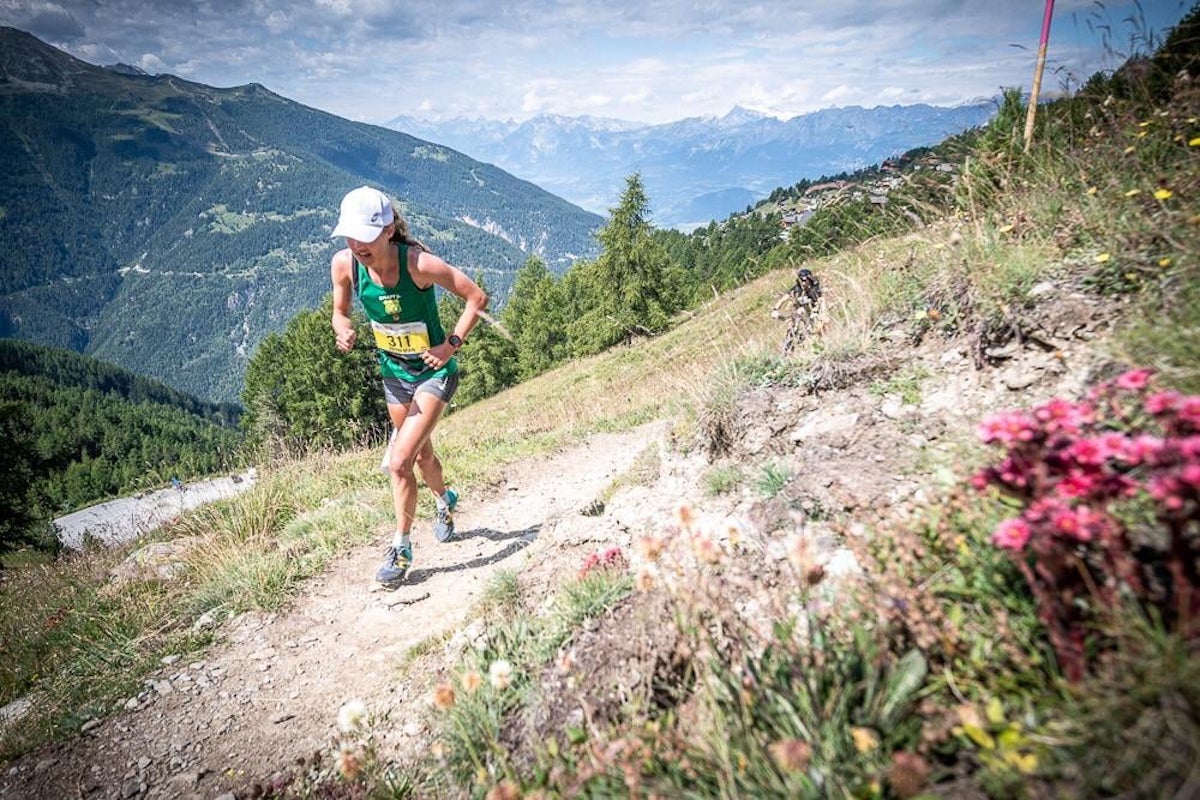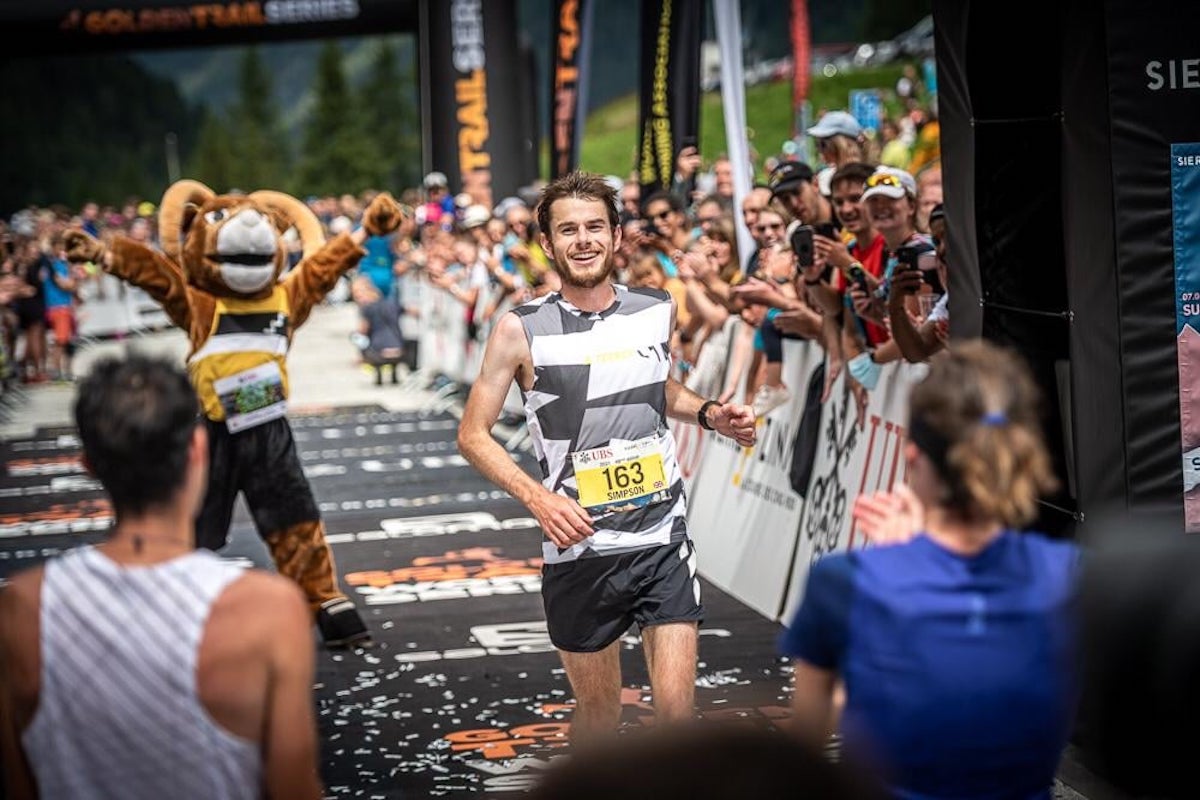In 2014, I had the opportunity to compete in the historic and beautiful Sierre-Zinal race in Switzerland. The 31-kilometer course starts in the town of Sierre, climbs steeply for four miles, and then levels out onto screaming fast singletrack trails on the way to the finish line in the town of Zinal. Besides being one of the most well-known trail races in the world for its views of the five 4,000-meter peaks along the course, it is also one of the most competitive.
Measuring Up to Yourself
In the days leading up to the race, I spent time previewing portions of the course and talking with the other elite runners during our group meals. It was during one of the meals, while we ate raclette with potatoes and pickles, that one of the favorites told me they wished they could fall and break their arm the day before the race so they wouldn’t have to toe the start line.
I remember that comment vividly. Here was a favorite to win one of the biggest trail running events in the world, saying they would rather suffer a major injury than start the race. Meanwhile, I was hoping to sneak into the top 10 overall and maybe shoot for a time bonus. I knew that a win would be a stretch for me, but I couldn’t wait to get to the start line.
The entire experience of racing Sierre-Zinal was a new challenge to me. I probably wasn’t going to win the race, but I was going to push myself to see how fast I could run — and how I would stack up to others at such an important race.
While I was focused on running my best effort, the other athlete was only focused on winning. Anything but winning would be a failure for them. That mindset is entirely based on an outcome that is often out of our control and neglects any other chance for growth and success that can occur along the way.

Nienke Brinkman climbing at the 2021 Sierre-Zinal to come in second. Photo: World Mountain Running Association
What Is Failure Avoidance?
Looking back on that comment now, I realize that athlete was what Burton and Raedeke call a failure avoider (1). These are outcome-oriented athletes who doubt themselves and focus on avoiding failure rather than striving for success. They base their self-worth as an athlete on outcomes, creating a large amount of anxiety that surrounds any sort of challenge.
Often, a high level of anxiety from previous poor performances breeds future poor performances, which in turn causes even greater anxiety. It is a cycle of anxiety, loss of confidence, and negative validation. Because they are caught up in this cycle, failure avoiders often come armed with sets of excuses to explain failure ahead of time.
It would be easier for them to take on a challenge with a handicap that will explain a poor performance, rather than to take a risk and possibly fail — or even succeed at a new challenge. They are not motivated to strive for personal success, only to do whatever it takes to avoid what they feel is the embarrassment of failure.
That comment at Sierre-Zinal has not been my only experience with failure avoidance in the trail running world. This type of behavior is everywhere. Sometimes it’s from the athlete who makes sure that everyone at the pre-race expo knows that they are undertrained and are just going to take this race “easy.”
Other times, you see it in the runner who self-sabotages their race by staying out late with friends the night before the start. These are people who are coping with anxiety by minimizing any risk of failure, but at the same time, they are making real success almost impossible.

Robbie Simpson crosses the line in second place at the 2021 Sierre-Zinal. Photo: World Mountain Running Association
How to Embrace and Enjoy the Process
These kinds of runners are ignoring an often used, but valuable piece of wisdom: to enjoy the process. This simple phrase holds a lot of weight. In each race, there can only be one true winner, but there are endless ways to succeed that don’t involve placing first.
Instead of seeing the result of a race as the only indication of success and failure, it is important to appreciate the smaller challenges we can overcome along the way. The success of training each day and improving by incremental amounts can be just as rewarding as a race, but only if we give it that importance.
Giving day-to-day goals more weight can make training more enjoyable and can also lead to better training. People who can enjoy the process of training can develop a cycle that is the opposite of failure avoidance. The smaller wins along the way develop more confidence, which improves training quality, and ultimately leads to better performances.
If any of the qualities of the failure-avoider ring true for yourself, it might be time to reevaluate what your priorities are and take some pressure off the outcome. Success does not have to be black and white. A successful race might be a personal best for one person, or it could be a well-executed nutrition plan for another.
Appreciating the process of improvement — and learning from setbacks — can be just as rewarding as winning a race. When we start to reevaluate what success looks like, we can approach difficult challenges with enthusiasm instead of fear.
References
- Burton, D., & Raedeke, T. D. (2008). Sport psychology for coaches. Leeds: Human Kinetics.
Call for Comments
- How do you minimize the fear of failure, or work around it?
- Can you share an experience where you set process goals that allowed you to measure your progress, not by just an end result that is not always in your control?
